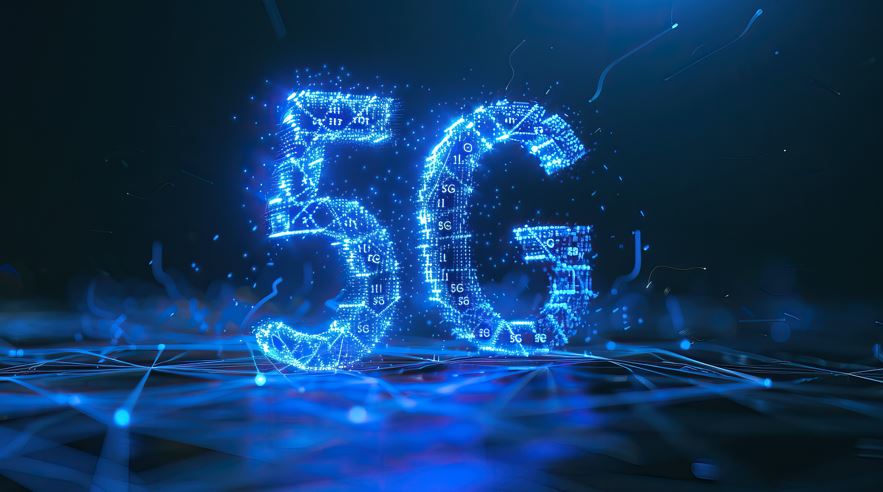5G Smartphones - what you need to know
5th August 2024
Jeff Patton
If you are contemplating the transition to a 5G smartphone and are unsure of the implications, this detailed guide aims to provide clarity on the intricacies of 5G technology.
The guide will elucidate the disparities between 5G and its predecessors, outline its advantages along with potential drawbacks, and discuss the anticipated impact of 5G on daily routines. Furthermore, it will furnish a catalogue of existing 5G smartphone models for your consideration.
We encourage you to remain engaged to acquire the necessary information for an informed decision prior to acquiring your next mobile device.
What Is 5G Technology?
5G technology represents the next-generation standard for wireless communication, offering the potential for accelerated speeds, increased capacity, and enhanced connectivity for mobile devices and internet usage. This cutting-edge technology is positioned to transform the landscape of device interaction and internet usage by delivering ultra-low latency, heightened network efficiency, and the ability to support a significant number of connected devices concurrently.
The rapid speeds and diminished latency associated with 5G present opportunities for progress in areas such as augmented reality, virtual reality, autonomous vehicles, and smart cities. This advanced connectivity not only elevates user experiences but also fuels innovation across various sectors including healthcare, manufacturing, and entertainment.
What Are the Differences Between 5G and Previous Generations of Technology?
The distinctions between 5G technology and previous generations are characterized by the significant advancements in connectivity, network capabilities, and performance that 5G offers in comparison to its predecessors.
5G technology fundamentally transforms the transmission of data, providing unprecedented speeds of up to 20 gigabits per second, facilitating rapid downloads and seamless streaming experiences. Its expanded network coverage ensures stable connectivity even in densely populated areas, addressing the limitations that were encountered by earlier generations of technology.
The reduced latency of 5G technology allows for real-time data processing, rendering it particularly suitable for applications such as autonomous vehicles and smart infrastructure. These enhancements collectively contribute to a level of efficiency and reliability in data transfer that distinguishes 5G from its predecessors.
How Does 5G Work?
5G technology operates by harnessing a higher frequency band for the transmission of data at accelerated speeds, thus facilitating enhanced performance and seamless communication across various devices and networks.
The utilization of higher frequency bands in 5G technology enables the simultaneous transmission of a larger volume of data in comparison to lower frequency bands. This expanded bandwidth translates into swifter response times and diminished latency, thereby affording users instantaneous connectivity.
Moreover, the higher frequencies can accommodate a greater number of connected devices without compromising on speed or quality, thereby fostering an interconnected and highly efficient network infrastructure. Consequently, 5G not only delivers enhancements in speed but also enables the realization of advanced functionalities such as virtual reality, autonomous vehicles, and smart city initiatives.
What Are the Benefits of 5G?
The advantages of 5G technology include faster data speeds, lower latency, and increased network capacity, which collectively offer users an enhanced connectivity experience and improved performance.
5G technology marks a significant advancement in the telecommunications sector, establishing a new benchmark for connection reliability and speed. Boasting data speeds that are up to 100 times faster than its predecessor, 5G enables seamless streaming, smoother video calls, and quicker downloads. The reduced latency ensures minimal delay in data transmission, optimizing real-time applications like online gaming and virtual meetings. Moreover, the expanded network capacity of 5G facilitates the connection of multiple devices simultaneously without compromising performance, thereby supporting the growth of the Internet of Things (IoT) and smart technologies.
1. Faster Data Speeds
5G technology offers a range of advantages, with one of the most prominent being its ability to deliver significantly faster data speeds. This feature facilitates rapid and efficient data transfer across devices and networks.
The accelerated speed provided by 5G technology presents users with a myriad of opportunities. These include the seamless streaming of high-definition content, ultra-fast downloads, and nearly lag-free online gaming experiences. Moreover, the enhanced data speeds contribute to improved network performance, leading to enhanced connectivity and reduced latency. The speed and reliability of 5G technology have the potential to transform user-device interactions and drive innovations in fields such as virtual reality, the Internet of Things (IoT), and autonomous vehicles.
2. Lower Latency
An additional significant advantage of 5G technology is the reduction in latency, which ensures minimal delays in data transmission and improves the overall speed and performance of network connectivity.
Decreased latency in a 5G network results in a considerable reduction in the time taken for data to move between devices. This leads to quicker response times for online activities such as streaming high-definition videos, gaming, and video conferencing.
Furthermore, lower latency is crucial for enabling real-time applications like autonomous vehicles and remote medical procedures to function seamlessly and without disruptions. The improved speed and performance facilitated by reduced delays in 5G technology are paving the way for a more connected and efficient digital world.
3. Increased Capacity
The implementation of 5G technology presents a notable advancement in network capacity, facilitating the simultaneous connection of a larger number of devices and ensuring uninterrupted connectivity across a wide range of applications and services.
The expanded network capacity offered by 5G technology heralds a new era of opportunities for users, businesses, and industries alike. By enabling the support of a greater volume of connected devices, 5G technology sets the stage for heightened productivity and efficiency.
Consider a scenario in which smart homes, autonomous vehicles, IoT devices, and virtual reality applications seamlessly interact and function without delays or disruptions. The robust connectivity afforded by 5G technology plays a pivotal role in the successful integration of these cutting-edge technologies, guaranteeing a seamless and uninterrupted user experience.
What Are the Potential Risks of 5G?
Despite its numerous advantages, the implementation of 5G technology brings forth potential risks that necessitate thorough examination and strategic mitigation.
Concerning health implications, various research studies have indicated that prolonged exposure to the higher frequency radiation utilized in 5G infrastructure may have deleterious effects on human well-being. These concerns encompass potential risks associated with cancer, genetic harm, and implications on neurological functions.
Moreover, in the realm of cybersecurity, the heightened connectivity and accelerated data transmission capabilities of 5G networks introduce novel challenges in safeguarding confidential data from cyber threats and breaches. It is imperative to address these vulnerabilities meticulously to ensure the secure and reliable integration of 5G technology.
1. Health Concerns
The health concerns associated with 5G technology primarily focus on the potential risks of radiation exposure and its implications for human health. These concerns have ignited discussions and inquiries into the safety of prolonged exposure to 5G technology.
Various studies have indicated that the electromagnetic radiation emitted by 5G technology may have detrimental effects on living organisms, prompting worries about heightened cancer risks and other health ailments. The close proximity of 5G towers to residential areas has exacerbated fears regarding continuous exposure to high-frequency electromagnetic fields. Health professionals advocate for further research to comprehend the long-term impacts of 5G radiation on human health and to develop guidelines for safe usage, aiming to alleviate potential risks.
2. Cybersecurity Risks
The challenges associated with cybersecurity risks in the realm of 5G technology include concerns related to data privacy, network vulnerabilities, and potential cyber threats that exploit weaknesses in the network infrastructure.
These risks are primarily a result of the unparalleled speed and connectivity that 5G networks provide, rendering them more susceptible to sophisticated cyberattacks. The substantial increase in connected devices enabled by 5G leads to an exponential growth in the attack surface, creating numerous entry points for malicious actors to breach systems and compromise sensitive data.
The ultra-low latency of 5G also presents new opportunities for cybercriminals to launch real-time attacks, necessitating that organizations deploy advanced encryption protocols and intrusion detection systems to effectively safeguard their networks.
How Will 5G Impact Our Daily Lives?
The advent of 5G technology is positioned to revolutionize daily life through the enhancement of communication, facilitation of advancements in smart technology, and instigation of changes in industries and businesses driven by its transformative capabilities.
This cutting-edge technology is anticipated to deliver faster and more reliable connections, thereby facilitating seamless video calls, hastening downloads, and providing smoother online experiences. The introduction of 5G is expected to elevate the responsiveness and efficiency of smart devices, fostering the expansion of interconnected smart homes and cities. It is projected that various sectors, including healthcare, transportation, and manufacturing, will experience substantial transformations, optimizing operations and enhancing productivity through the incorporation of 5G technology.
1. Improved Communication and Connectivity
The emergence of 5G technology presents a significant advancement in communication technology, promising enhanced connectivity and user experiences through innovative network enhancements and digital connectivity solutions.
The implementation of 5G technology heralds a new era of improved data speeds, reduced latency, and expanded network capacity, facilitating seamless and uninterrupted connectivity for users. This transformation is poised to redefine communication methods, content streaming, and online engagement for individuals.
Furthermore, the enhanced network infrastructure created by 5G technology paves the way for groundbreaking developments such as the proliferation of Internet of Things (IoT) technologies, the establishment of smart cities, and the integration of augmented reality applications. These innovations are expected to streamline daily tasks, enhance efficiency, and increase convenience. Ultimately, 5G technology is anticipated to reshape the ways in which individuals interact with their devices and the surrounding environment, driving significant advancements in various sectors.
2. Advancements in Smart Technology
The advent of 5G technology has facilitated significant advancements in smart technology through the provision of seamless connectivity for Internet of Things (IoT) devices. This has led to the proliferation of innovation and integration of smart features in various devices and applications.
The high speeds and low latency made possible by 5G networks have ushered in a new era of global connectivity. IoT devices can now communicate instantly and effectively, resulting in increased productivity and convenience for users. The evolution of 5G has catalyzed a surge in device innovation, as manufacturers incorporate state-of-the-art technology to elevate the overall user experience. From smart homes to autonomous vehicles, the influence of 5G on smart technology is fundamentally reshaping the manner in which we engage with our surroundings.
3. Changes in Industries and Businesses
The advent of 5G technology is anticipated to bring about a transformative impact on industries and businesses, facilitating digital transformation, optimizing operational efficiencies, and nurturing innovative solutions that capitalize on its advanced connectivity capabilities.
A broad array of industries and businesses spanning different sectors are expected to witness substantial transformations in their operations and offerings as they embrace the potential of 5G technology. With its unparalleled speed, minimal latency, and vast capacity, 5G introduces opportunities for real-time data processing, seamless connectivity, and the implementation of cutting-edge technologies such as the Internet of Things (IoT) and artificial intelligence (AI). This pivot towards a more interconnected and adaptable ecosystem is compelling organizations to reassess their strategies and embrace novel solutions to maintain competitiveness in the swiftly evolving digital terrain.
What Are the Current 5G Smartphone Options?
Prominent device manufacturers provide a variety of 5G smartphone options, which include the Apple iPhone 12, Samsung Galaxy S20, OnePlus 8 Pro, and Google Pixel 5, addressing the diverse requirements of smartphone users within the competitive mobile industry.
These premium models are equipped with state-of-the-art technology, ranging from Apple's A14 Bionic chip featured in the iPhone 12 to Samsung's impressive Dynamic AMOLED display offered on the Galaxy S20. The OnePlus 8 Pro stands out with its smooth 120Hz refresh rate, particularly appealing to gamers and multimedia enthusiasts. Google's Pixel 5 distinguishes itself with its exceptional camera capabilities, utilizing artificial intelligence to produce remarkable photography. Each of these devices highlights the capabilities of 5G connectivity, facilitating rapid speeds and seamless online experiences for users on the move.
1. Apple iPhone 12
The Apple iPhone 12 is distinguished as a flagship 5G smartphone renowned for its advanced features, elegant design, and seamless incorporation of 5G technology to deliver exceptional performance and user satisfaction.
Equipped with the A14 Bionic chip, which stands as the fastest chip ever utilized in a smartphone, the iPhone 12 ensures rapid processing and graphic capabilities. The device features a Super Retina XDR display that offers striking visuals enhanced by HDR and True Tone technology for vivid color reproduction. Furthermore, the iPhone 12 is equipped with an advanced dual-camera system integrated with Night mode to enable impressive photography even in low-light environments. Its Ceramic Shield front cover enhances durability, increasing resistance to drops and everyday usage.
The collective attributes of the iPhone 12 position it as a premier choice for technology enthusiasts seeking unrivaled performance and aesthetic appeal.
2. Samsung Galaxy S20
The Samsung Galaxy S20 stands out as a high-end 5G smartphone, offering notable advantages such as rapid network connectivity, innovative functionalities, and a smooth user interface. These attributes collectively establish it as a premier choice within the 5G smartphone segment.
Equipped with cutting-edge 5G capabilities, the Samsung Galaxy S20 facilitates swift download and upload speeds, enhancing user experiences across streaming, gaming, and browsing activities. Moreover, the device's advanced camera system, comprising a high-resolution sensor and AI-powered features, ensures exceptional photographic and videographic results. Coupled with an intuitive interface and sophisticated design, the Galaxy S20 not only delivers powerful performance but also exhibits user-friendly attributes that cater to the preferences of both technology enthusiasts and casual users seeking a premium smartphone experience.
3. OnePlus 8 Pro
The OnePlus 8 Pro emerges as a high-performance 5G smartphone that excels in mobile connectivity. It boasts seamless network capabilities, robust performance, and cutting-edge features tailored to tech-savvy users in search of advanced mobile innovations.
The device is powered by the lightning-fast Snapdragon 865 processor and Adreno 650 GPU, ensuring a smooth and lag-free experience across activities such as gaming, multitasking, and streaming high-definition content. The 120Hz Fluid Display enhances visual clarity, rendering every swipe and scroll a delightful experience. With 5G connectivity, users can stay connected at ultra-fast speeds, and features like Warp Charge 30T and Warp wireless charging facilitate quick and convenient power-ups, enabling sustained productivity throughout the day.
4. Google Pixel 5
The Google Pixel 5 is recognized for its versatile 5G capabilities, offering exceptional device compatibility and network performance. This smartphone provides users with a streamlined experience and reliable connectivity that caters to the requirements of the modern digital landscape.
Crafted to effortlessly adjust to advancing connectivity standards, the Google Pixel 5 guarantees a seamless transition to cutting-edge technologies, ensuring users access optimal network performance. The device's innovative 5G features facilitate high-speed data transfers and minimal latency, making it ideal for tasks such as streaming high-definition content and engaging in online gaming.
Furthermore, the Google Pixel 5's compatibility with a range of networks enhances its versatility, enabling users to maintain connectivity across different carriers while enjoying the advantages of next-generation connectivity technologies.
What Should You Consider Before Purchasing a 5G Smartphone?
Before the acquisition of a 5G smartphone, it is imperative to consider various factors such as speed requirements, device capabilities, network compatibility, and future-proof features. This evaluation is essential to guarantee that the device aligns with your connectivity needs and complements your digital lifestyle.
The speed requirements of a 5G smartphone are pivotal in determining its performance. It is advisable to evaluate your usage patterns to ascertain whether ultra-fast download and upload speeds are necessary for activities such as streaming 4K videos or engaging in online gaming.
Device capabilities encompass the hardware specifications of the smartphone, including the processor, RAM, and storage space, which significantly influence overall performance. It is prudent to verify if the smartphone offers advanced features such as multiple rear cameras, a high-quality display, and robust durability to enhance the user experience.
Network compatibility stands as a critical factor to ensure that the 5G smartphone is harmonious with the frequencies utilized by your carrier. This compatibility is paramount for optimal signal reception and data speeds.















